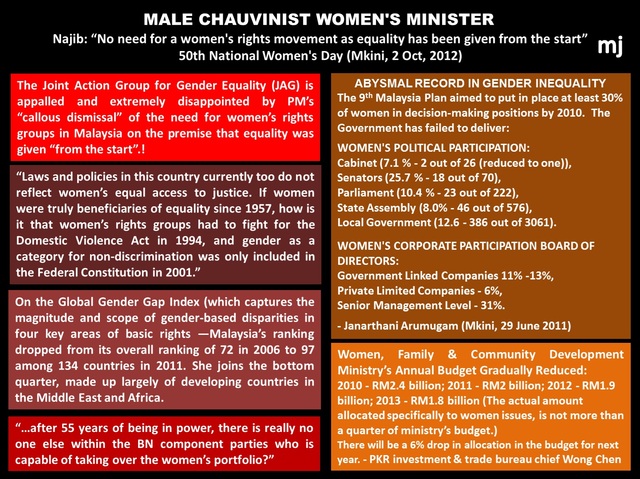— Aspan Alias
The Malaysian Insider
Oct 08, 2012
8 OKT — Dr Mahathir semalam bercakap lagi dan menambahkan keyakinan ramai yang beliau tidak lagi berasa senang melihat kejatuhan Umno dan BN. Jika BN jatuh beliaulah orang yang paling merasakan panasnya dan ini merupakan satu igauan bagi beliau.
Beliau tidak pernah menyangka yang suatu hari nanti beliau akan tertekan dengan keadaan politik ciptaan beliau sendiri. Beliau tidak pernah menyangka yang suatu hari nanti rakyat akan membuka mata dan politik selepas itu akan menjadi mimpi ngeri bagi beliau.
Selama ini beliau merasakan beliau boleh melakukan apa sahaja terhadap politik dan rakyat negara ini. Beliau tidak pernah menyangka yang pada suatu hari selepas beliau meletakkan jawatan dan bersara dari kerajaan pimpinannya akan datang isu-isu yang menjadikan parti dan kerajaan pimpinannya akan dibelakangkan oleh rakyat semua kaum.
Berbagai cara beliau untuk mempertahankan kejatuhan Umno yang beliau tubuhkan itu. Menuduh semua orang bertanggungjawab di sana sini terutamanya pihak pembangkang. Dr Mahathir bukan sahaja mengutuk pembangkang untuk memalingkan rakyat mengarahkan kesalahan kepada beliau malahan beliau menumpukan masa dan waktunya untuk menuduh Abdullah Ahmad Badawi pemimpin yang beliau pilih sendiri untuk menggantikannya.
Semua orang salah kecuali beliau dan keluarga beliau. Dr Mahathirlah pemimpin yang bergaduh dengan semua pihak semasa beliau memegang kuasa beliau seorang sahajalah yang betul. Orang lainnya semuanya tidak betul. Orang lain semuanya anti Melayu. Hanya beliau sahajalah pejuang Melayu. Orang yang benar-benar Melayu tidak memperjuangkan Melayu tetapi mereka yang menjadi Melayu “by choice” memperjuangkan hak Melayu. Itu kepercayaan Dr Mahathir. Continue reading “Sendiri yang tak pandai, salahkan Soros pula”

